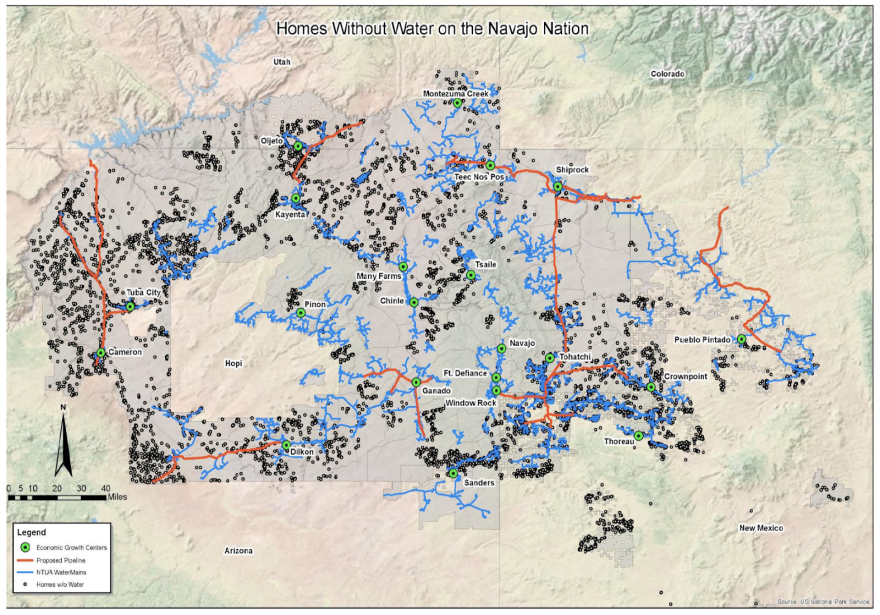The Navajo Utah Water Rights Settlement Act passed the U.S. Senate on June 4, bringing thousands of Navajo families one step closer to getting running water in their homes.
“I was so excited,” said Kenneth Maryboy, a Navajo tribal member and San Juan County commissioner. “I just sat outside under the shade house and nearly cried, because that’s what we’ve been fighting for.”
Maryboy’s brother, Mark, was equally pleased and surprised. He is a former San Juan County commissioner and Navajo Nation council delegate who said he has been advocating for the water settlement for over 20 years.
“I walked the halls of Congress for many years, begging individual Congress [members] to support our water right,” he said.
Former Republican Utah Sen. Orrin Hatch introduced the bill in 2016, and then again in 2018. It failed both times, despite being recommended to pass in 2018 by the Senate Committee on Indian Affairs.
Sen. Mitt Romney reintroduced the legislation in 2019, and it passed the Senate as part of a bipartisan bill related to Indian water rights last week.

The settlement act gives the Navajo Nation the right to use 81,500 acre-feet of water from the Colorado River Basin each year, settling all future claims to water on the Navajo Nation in Utah. It also includes $210 million in federal funding that will be used to treat and move the water to communities like Monument Valley, where over 40% of homes lack indoor plumbing.
The Navajo Tribal Utility Authority provides water to around 40,000 homes and businesses with just 10,000 acre feet of water annually, according to Rex Kontz. He oversees water systems for the utility and said the 81,500 acre feet of water in the Utah settlement is more than enough to meet the needs of the 5,000 or so residents of the Navajo Nation in Utah.
“It’s a huge amount of water,” Kontz said of the Navajo-Utah settlement. “The next step is ‘How are you going to use it?’”
Romney’s office has said the money in the settlement will help bring water to around 2,500 residents. But the money is not earmarked for specific projects, and it will be up to Navajo Nation leadership to decide how to use it.
The greatest benefit of the settlement could be that it makes large scale development on the reservation more viable, according to Kontz.
“You can create plans that will entice investors and grant agencies to build things that weren’t feasible,” he said. “That’s what this water has the potential to do.”
Before it becomes law, the bill must pass the House, where it was reported out of the Natural Resources Committee by unanimous consent in February.
Congressman John Curtis, R-Utah, who represents Southeast Utah and is co-sponsoring the bill with the rest of Utah’s representatives, said it has a good chance of passing the House.
Maryboy said he’s also confident it will pass the House, given his experience lobbying for the legislation.
“The sticking point was in the Senate,” he said. “When I heard the news I thought, ‘Wow, it’s gonna happen.’”
Kate Groetzinger is a Report for America corps member who reports from KUER's Southeast Bureau in San Juan County. Follow Kate on Twitter @kgroetzi
Correction 3:54 p.m. MDT 6/10/2020: This article has been updated to reflect the amount of water used by the Navajo Tribal Utility Authority annually as well as to clarify the Nation’s water rights settlement with New Mexico.


